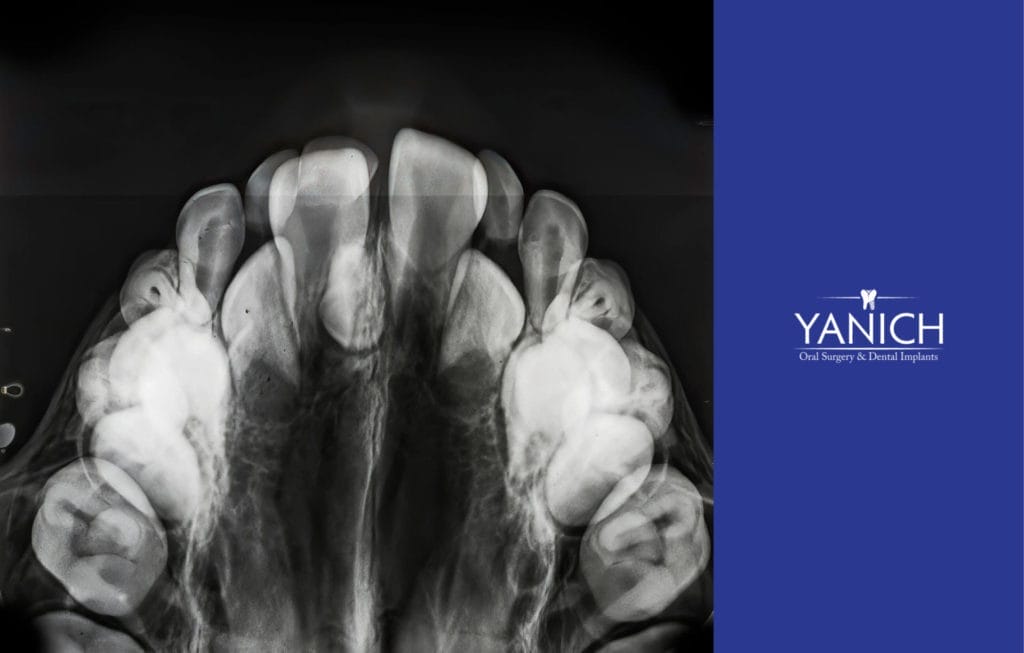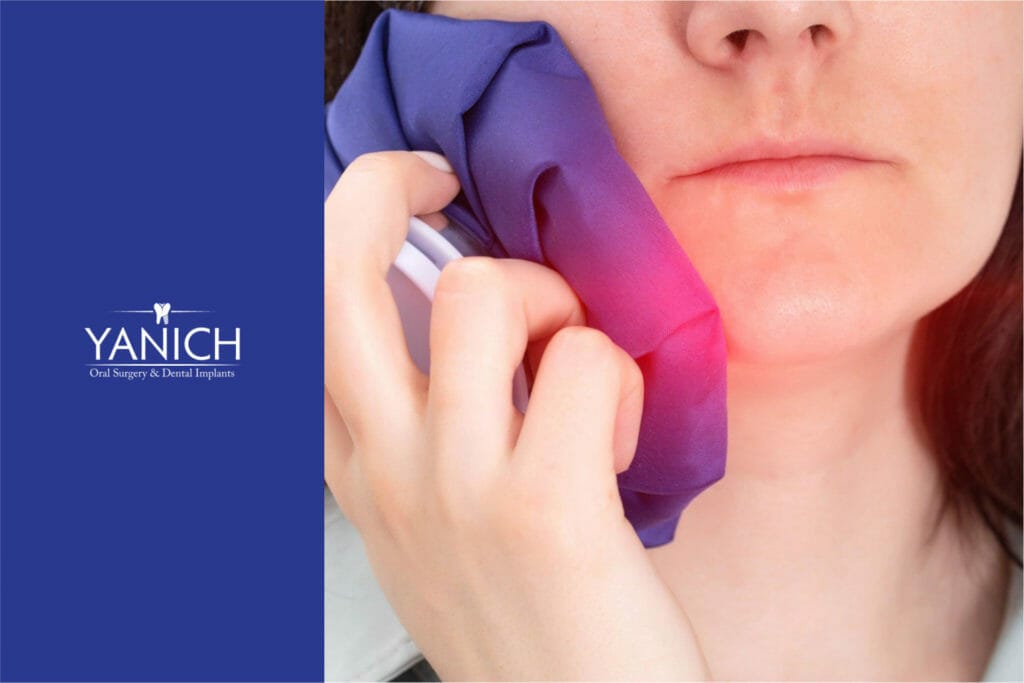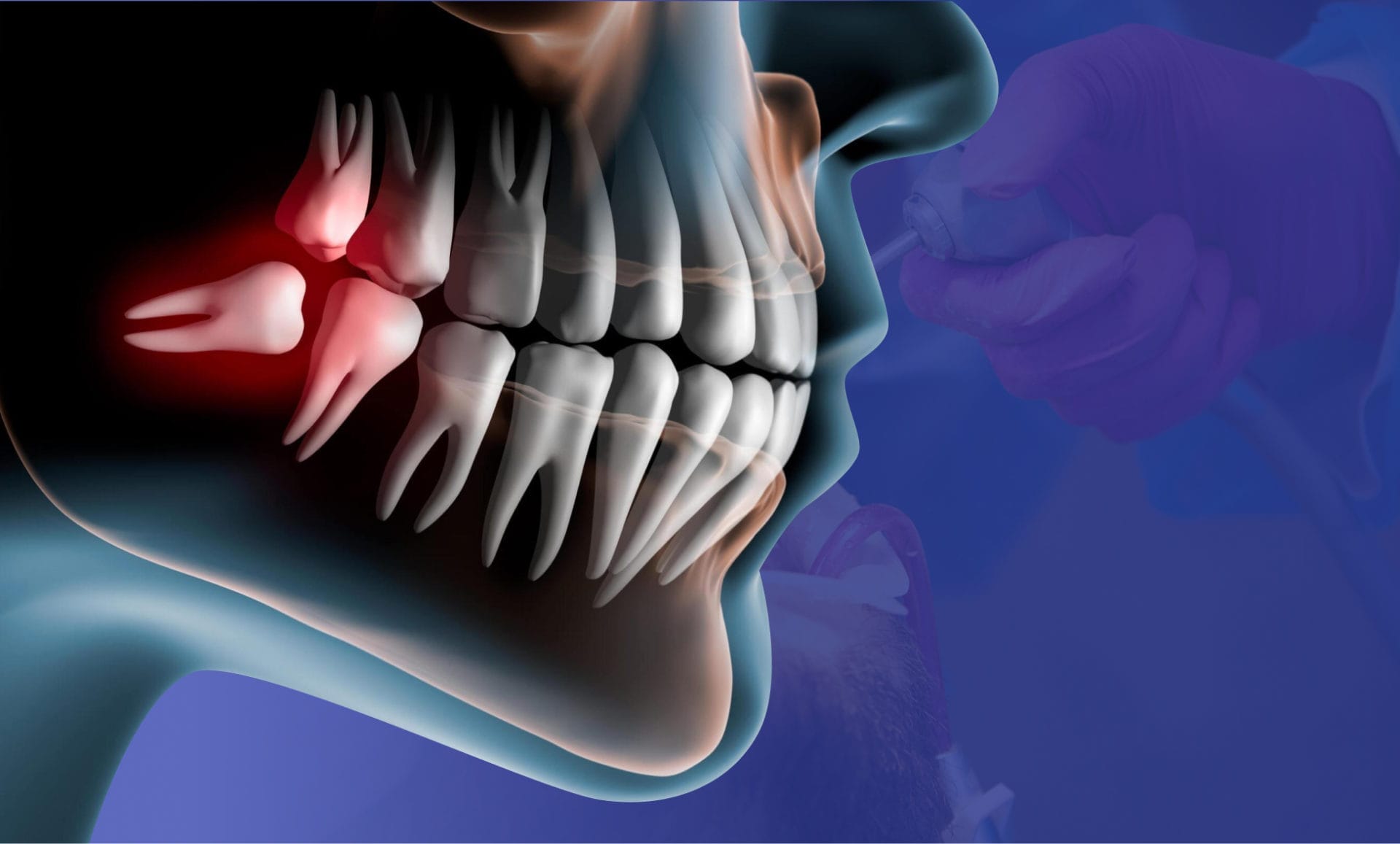If you’ve had your wisdom teeth removed, you may wonder, “Can wisdom teeth grow back?”
Keep reading for clear, authoritative answers about the regrowth of wisdom teeth, backed by dental research and expert opinions. You’ll discover the facts about wisdom teeth regrowth and insights into related dental phenomena that could affect your oral health.
Can Wisdom Teeth Regrow After Removal?
Wisdom teeth, the third set of molars in the back of your mouth, typically appear in late adolescence or early adulthood. After developing wisdom teeth, they are often removed quickly due to limited space in the jaw or their tendency to grow improperly.
The removal of wisdom teeth, a standard dental procedure, is usually recommended to prevent potential problems such as misalignment of other teeth, infections, or cysts.
Removing wisdom teeth involves a surgical procedure, significantly when the teeth are impacted, meaning they have not fully emerged through the gums.
Dentists or oral surgeons perform this procedure, ensuring minimal discomfort and promoting quick recovery. Post-removal care is crucial for healing, with guidelines including managing swelling, avoiding certain foods, and maintaining oral hygiene to prevent infection.
The Reality of Wisdom Teeth Regrowth
Like many myths and misconceptions about wisdom teeth removal, the straightforward answer is no; wisdom teeth can’t grow back.
Once wisdom teeth are removed, they do not regrow. The tooth’s entire structure, including the root, is extracted, leaving no basis for regeneration.
However, there are rare instances where patients may experience what seems like the regrowth of a wisdom tooth. This phenomenon is typically due to supernumerary teeth, which are extra teeth beyond the usual count.
These are not regrown wisdom teeth but additional teeth that were already present in the jaw and may emerge after the removal of wisdom teeth. It’s important to note that this is rare, occurring in a small percentage of the population.

Exploring Hyperdontia: Related Dental Phenomenon
Hyperdontia is a relatively rare dental condition characterized by the development of extra teeth beyond the standard adult set of 32. These additional teeth, known as supernumerary teeth, can appear in any area of the mouth but are most commonly found near the molars, including the area where wisdom teeth grow.
Hyperdontia can manifest in various forms, ranging from a single extra tooth to multiple additional teeth, and can occur in both primary (baby) and permanent teeth.
The exact cause of hypodontia is not fully understood, but it’s believed to be linked to genetic factors. It’s more prevalent in certain conditions, such as Gardner’s syndrome or cleidocranial dysostosis.
While hyperdontia can occur in anyone, studies suggest a slightly higher occurrence in males than females.
Managing Hyperdontia
The management of hyperdontia depends on several factors, including the number of extra teeth, their location, and the potential impact on oral health.
In some cases, supernumerary teeth don’t cause problems and may not require treatment.
However, in other instances, they can lead to complications such as crowding, misalignment of teeth, or impaction of neighboring teeth.
When treatment is necessary, it typically involves the removal of the extra teeth. This is particularly important if they are causing pain, obstructing other teeth, or complicating oral hygiene practices.
Post-removal, orthodontic treatment may be recommended to correct any misalignments or spacing issues caused by the supernumerary teeth.
Regular dental check-ups are crucial for the early detection and management of hypodontia.
Dentists can identify the presence of extra teeth through routine examinations and X-rays, ensuring timely intervention to prevent potential complications.

The Process and Aftermath of Wisdom Teeth Removal
Wisdom teeth removal is a common dental procedure, mainly due to the problems these teeth can cause when they emerge.
The primary reasons for their removal include:
- Lack of Space: Many people’s jaws need to be bigger to accommodate these third molars, leading to crowding and misalignment of existing teeth.
- Impaction: Wisdom teeth often do not emerge properly. They can become trapped (impacted) in the jawbone or gums, which can be painful and lead to infection.
- Risk of Dental Issues: Partially erupted wisdom teeth are difficult to clean, increasing the risk of tooth decay, gum disease, and even the formation of cysts.
- Orthodontic Reasons: Sometimes, wisdom teeth are removed to prevent disruption of orthodontic treatments or to correct existing dental alignment issues.
Recovery and Care Post-Removal
Recovery after wisdom teeth removal varies from person to person but typically involves a short period of rest and limited activity.
Proper care post-removal is crucial for the following reasons:
- Managing Swelling and Pain: Apply ice packs and take prescribed pain relievers as directed. Swelling usually subsides within a few days.
- Diet Adjustments: Stick to soft foods and avoid hot, spicy, or hard-to-chew foods that might irritate the extraction site.
- Oral Hygiene: Gentle rinsing with warm salt water can help keep the area clean. Avoid vigorous rinsing or spitting to prevent dislodging the blood clot –– use a straw if you find it painful to rinse.
- Activity Level: Rest for the first 24 hours and avoid strenuous activities for a few days to reduce bleeding and aid healing.
Most people recover fully within a week or two. However, following your dentist’s instructions and attending follow-up appointments is important to ensure proper healing.
Contact your dentist immediately if you experience prolonged or severe pain, swelling, or signs of infection after your wisdom teeth extraction procedure.
Additional Considerations and FAQs
Do Wisdom Teeth Cause Headaches?
The relationship between wisdom teeth and headaches is due to the pressure and pain caused by these teeth as they emerge or become impacted.
Here’s how wisdom teeth can lead to headaches:
- Pressure on Surrounding Teeth: As wisdom teeth try to erupt in an already crowded mouth, they can exert pressure on adjacent teeth. This pressure can lead to headaches, often felt in the temples or the back of the head.
- Inflammation and Infection: Impacted wisdom teeth can lead to inflammation and infection in the gums and surrounding tissues, which can cause headaches.
- Jaw Strain: Misalignment caused by emerging or impacted wisdom teeth can strain the muscles in the jaw, leading to tension headaches.
If you’re experiencing headaches and suspect your wisdom teeth might be the cause, it’s important to consult with the right type of dentist for a proper evaluation and treatment plan.
Timing and Signs of Wisdom Teeth Emergence
Understanding when wisdom teeth typically emerge and recognizing the signs can help you manage this dental milestone more effectively.
Here’s what you need to know:
- Age of Emergence: Wisdom teeth usually emerge between the ages of 17 and 25. However, this can vary widely from person to person.
- Signs of Emergence: Common signs that your wisdom teeth are coming in include:
- Jaw pain or tenderness near the back of the mouth
- Swelling or redness in the gums at the back of the mouth
- Difficulty opening the mouth or chewing
- A sensation of pressure or crowding in the back of the mouth
It’s important to note that not everyone will experience these symptoms, and for some, wisdom teeth emerge without any issues.
Regular dental check-ups are crucial, as they allow your dentist to monitor the progress of your wisdom teeth and address any potential problems or questions you may have.
Address Your Wisdom Teeth Concerns with Expert Care Now
We’ve clarified that wisdom teeth do not grow back.
However, the importance of professional dental care in managing wisdom teeth issues cannot be overstated.
If you’re experiencing discomfort, have concerns about your wisdom teeth, or need expert dental guidance, seeking the proper care is crucial.
For personalized care and expert solutions to your wisdom teeth concerns, contact Yanich Oral Surgery now, the best oral surgeon in Marion, OH, and other surrounding areas..


